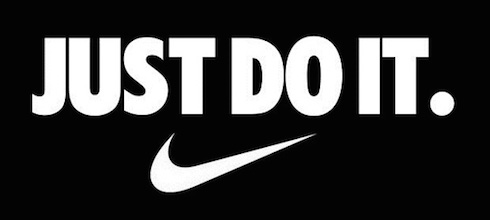The Happiness Industry and Depressive-Competitive Disorder

To coincide with World Mental Health Day on October 10th 2015, we present the following extract from William Davies' The Happiness Industry. Charting how, from the 1970s onwards, the diagnosis and treatment of mental health has been been influenced by the drive for quantifiabilty and empirical 'rigour', Davies argues that the psychological state of the individual now becomes a target for the accumulation of capital—to the extent that it is no longer clear whether pharmaceutical products are created to treat illnesses, or 'disorders' themselves are defined into existence to conjure a market for drugs.
The viciousness of this system is compounded by the specificity of neoliberal capitalism, which sees competitiveness as the ultimate virtue and failure as an individual vice. Society will force you to be happy: if you're not, you only have yourself to blame. 
Relatively unhappy
The DSM-III was arguably the most revolutionary and controversial text in the history of American psychiatry. Finalized over the course of 1979 and published the following year, this handbook bore scarce resemblance to its 1968 predecessor. The DSM-II outlined 180 categories over 134 pages. The DSM-III contained 292 categories over 597 pages. The St Louis School’s earlier diagnostic toolkit had specified (somewhat arbitrarily) that a symptom needed to be present for one month before a diagnosis was possible. Without any further justification the DSM-III reduced this to two weeks.
Henceforth, a mental illness was something detectable by observation and classification, which didn’t require any explanation of why it had arisen. Psychiatric insight into the recesses and conflicts of the human self was replaced by a dispassionate, scientific guide for naming symptoms. And in scrapping the possibility that a mental syndrome might be an understandable and proportionate response to a set of external circumstances, psychiatry lost the capacity to identify problems in the fabric of society or economy. Proponents described the new position as ‘theory neutral’. Critics saw it as an abandoning of the deeper vocation of psychiatry to heal, listen and understand. Even one of the task force members, Henry Pinsker (not from St Louis), started to get cold feet: ‘I believe that what we now call disorders are really but symptoms’.
The DSM-III came about because the APA had found itself on the wrong side of too many cultural and political arguments at once. The forms of truth that psychiatrists were seeking could not survive the turbulent atmosphere of 1968 and its aftermath: they were too metaphysical, too politically loaded and too difficult to prove. But amidst this is a story about how happiness – and its opposite – appeared as a preoccupation of mental health professionals, medical doctors, pharmaceutical companies and individuals themselves. To get to this point, the mainstream psychiatric establishment had to be virtually cut out of the loop. A landmark legal case in 1982, in which a psychiatrist was successfully sued for prescribing long-term psychodynamic therapy to a depressed patient, and not an antidepressant drug, offered arousing demonstration of the new state of affairs. Today, 80 percent of the prescriptions that are written for antidepressants in the United States are by medical doctors and primary care practitioners, and not by psychiatrists at all.
In a post-1960s era of ‘self-anchored striving’, what can people possibly hold in common other than a desire for more happiness? And what higher purpose could a psychological expert pursue than the reduction of unhappiness? These simple, seemingly indisputable principles were what emerged from the cultural and political conflicts which came to a head in 1968. The growing problem of depression, experienced as a non-specific lack of energy and desire, combined with the emergence of a drug that seemed selectively to alleviate this, and the need of drug companies, regulators and health insurers to find clarity amidst such murkiness, meant that psychoanalytic expertise was heading for a fall.
It is only in a society that makes generalized, personalized growth the ultimate virtue that a disorder of generalized, personalized collapse will become inevitable. And so a culture which values only optimism will produce pathologies of pessimism; an economy built around competitiveness will turn defeatism into a disease. Once the Benthamite project of psychic optimization loses any sense of agreed limits, promising only more and more, the troubling discovery is made that utilitarian measurement can go desperately negative as well as positive.
Depressive-competitive disorder
‘Just do it’. ‘Enjoy more’. Slogans such as these, belonging to Nike and McDonald’s respectively, offer the ethical injunctions of the post-1960s neoliberal era. They are the last transcendent moral principles for a society which rejects moral authority. As Slavoj Žižek has argued, enjoyment has become an even greater duty than to obey the rules. Thanks to the influence of the Chicago School over government regulators, the same is true for corporate profitability.

The entanglement of psychic maximization and profit maximization has grown more explicit over the course of the neoliberal era. This is partly due to the infiltration of corporate interests into the APA. In the run up to the DSM-V, published in 2013, it was reported that the pharmaceutical industry was responsible for half of the APA’s $50 million budget, and that eight of the eleven-strong committee which advised on diagnostic criteria had links to pharmaceutical firms. The ways in which we describe ourselves and our mental afflictions are now shaped partly by the financial interests of big pharma.
One of the last remaining checks on the neurochemical understanding of depression was the exemption attached to people who were grieving: this, at the very least, was still considered a not unhealthy reason to be unhappy. But in the face of a new drug, Wellbutrin, promising to alleviate ‘major depressive symptoms occurring shortly after the loss of a 'loved one’, the APA caved in and removed this exemption from the DSM-V. To be unhappy for more than two weeks after the death of another human being can now be considered a medical illness. Psychiatrists now study bereavement in terms of its possible mental health ‘risks’, without any psychoanalytic or common sense of why loss might be a painful experience.
Corporations are also increasingly aware of the economic inefficiency of depression in an economy that trades on enthusiasm in the workplace and desire in the shopping mall. Finding ways to lift people out of this illness, or reduce the risks of encountering it in the first place (through tailored diet, exercise or even brain scans to assess the risk early in children), is viewed as essential to the survival of corporate profitability. One report on the topic, sponsored by a number of UK corporations including Barclays Bank, stated with a peculiar absence of compassion, ‘Today’s brain-based economy puts a premium on cerebral skills, in which cognition is the ignition of productivity and innovation. Depression attacks that vital asset.’
One way in which Bentham was shaped by the emancipatory social spirit of his age was in his assumption that the measurement and maximization of happiness were a collective venture. There was, in principle, a justification for one man’s happiness to be impeded: for another man’s benefit. Admittedly, the main arena in which he explored this was punishment: prison is justified to the extent that non-prisoners benefit from its existence. But nevertheless, the calculus of utility was one that took everyone into account. In economic policy, this could justifytransfers of money from rich to poor, if it was clear that poverty was the cause of misery.
The depressive-competitive disorder of neoliberalism arises because the injunction to achieve a higher utility score – be that measured in money or physical symptoms – becomes privatized. Very rich, very successful, very healthy firms or people could, and should, become even more so. In the hands of the Chicago School of economics or the St Louis School of psychiatry, the logic that says we have a particular political or moral responsibility towards the weak, which may require us to impose restrictions on the strong, is broken. Authority consists simply in measuring, rating, comparing and contrasting the strong and the weak without judgement, showing the weak how much stronger they might be, and confirming to the strong that they are winning, at least for the time being.
Buried within the technocratic toolkits of neoliberal regulators and evaluators is a brutal political philosophy. This condemns most people to the status of failures, with only the faint hope of future victories to cling onto. That school in London ‘where the pupils are allowed to win just one race each, for fear that to win more would make the other pupils seem inferior’ was, in fact, a model of how to guard against a depressive-competitive disorder that few in 1977 could have seen coming. But that would also have required a different form of capitalism, which few policymakers today are prepared to warrant.

The Happiness Industry by William Davies is available direct from the Verso website, with a 20% discount, together with free ebook and postage.